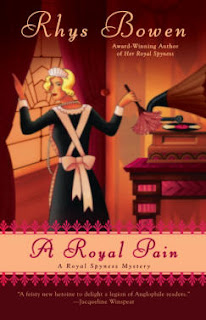I have been one acquainted with the night.
I have walked out in rain --and back in rain.
I have outwalked the furthest city light.
I have looked down the saddest city lane.
I have passed by the watchman on his beat
And dropped my eyes, unwilling to explain.
I have stood still and stopped the sound of feet
When far away an interrupted cry
Came over houses from another street,
But not to call me back or say good-bye;
And further still at an unearthly height
One luminary clock against the sky
Proclaimed the time was neither wrong nor right.
I have been one acquainted with the night.
I think it appeals to me because of the emphasis on binaries (in/out, wrong/right, stay/go, dark/light, up/down) as well as reflective pauses (the silence of footsteps, the glance at the clock). It reminds me that shifting borders can be home, that existence and presence can slip between discrete concretes.
When far away an interrupted cry
Came over houses from another street,
But not to call me back or say good-bye;
And further still at an unearthly height
One luminary clock against the sky
Proclaimed the time was neither wrong nor right.
I have been one acquainted with the night.
I think it appeals to me because of the emphasis on binaries (in/out, wrong/right, stay/go, dark/light, up/down) as well as reflective pauses (the silence of footsteps, the glance at the clock). It reminds me that shifting borders can be home, that existence and presence can slip between discrete concretes.
Living with both anxiety and depression has been similarly fluid. One comes, the other goes, and vice versa. Having grown up with several bipolar and anxiety-ridden family members, "manic" is my default standard for acceptable human interaction... so it took me years to recognize that emotional ping-pong tournaments are not the norm for everyone. Though they're inherently a part of me, what has proven incredibly difficult is the process of un-learning it.
At one point in my life, being biracial defined my worldview - explaining identity in terms of (but inherently against) a constructed binary, and rejecting everything that demanded a monochromatic tone. I've moved past that introspective period of my life to a firmer, confident identity - but the underlying acceptance of fluidity and shifting states of being doesn't seem to go away.
Both the anxiety and depression are manageable, even when triggered unexpectedly. For starters, medication helps alleviate some of the agonizing and destructive mood spikes. Coping with just thoughts and emotions but not the chemical, tangible feelings and visceral reactions is rather bizarre, though, after living with mental chaos. I described it to someone I once counted as a friend as feeling like Super Mario: running along on a level path, jumping up slightly, but unable to skyrocket, fly, or plummet erratically. (It wasn't a perfect analogy, given that I don't play video games, but it's what my brain gave me in order to explain itself and its chemical changes.)
At one point in my life, being biracial defined my worldview - explaining identity in terms of (but inherently against) a constructed binary, and rejecting everything that demanded a monochromatic tone. I've moved past that introspective period of my life to a firmer, confident identity - but the underlying acceptance of fluidity and shifting states of being doesn't seem to go away.
Both the anxiety and depression are manageable, even when triggered unexpectedly. For starters, medication helps alleviate some of the agonizing and destructive mood spikes. Coping with just thoughts and emotions but not the chemical, tangible feelings and visceral reactions is rather bizarre, though, after living with mental chaos. I described it to someone I once counted as a friend as feeling like Super Mario: running along on a level path, jumping up slightly, but unable to skyrocket, fly, or plummet erratically. (It wasn't a perfect analogy, given that I don't play video games, but it's what my brain gave me in order to explain itself and its chemical changes.)
I love my family. I love my friends. I have many close friendships, and every day I am stunned by how many amazing people I am privileged to include in my life. I enjoy writing and singing and dancing, and am told I do all three incredibly well. I prefer to have philosophical conversions with a few people over wine, beer, or good food rather than loud times at popular, crowded places. These are the moments and pieces of beauty that make me happy and give me strength.
But still, there's that little stone room, that damned laird's lug, that sees and hears and senses and feels that very full life from a distance. Voices echo in it. Sometimes it's a struggle to breathe inside, and sometimes it's a struggle to realize that the walls themselves are a mere hologram.
In one of my favorite movies, one protagonist says to the other,
"I believe if there's any kind of God it wouldn't be in any of us, not you or me but just this little space in between. If there's any kind of magic in this world it must be in the attempt of understanding someone sharing something. I know, it's almost impossible to succeed but who cares, really? The answer must be in the attempt."
Indeed.


 On to the next historical mystery series, of course! This one took a while for me to get into, but now I'm kind of charmed by it.
On to the next historical mystery series, of course! This one took a while for me to get into, but now I'm kind of charmed by it.